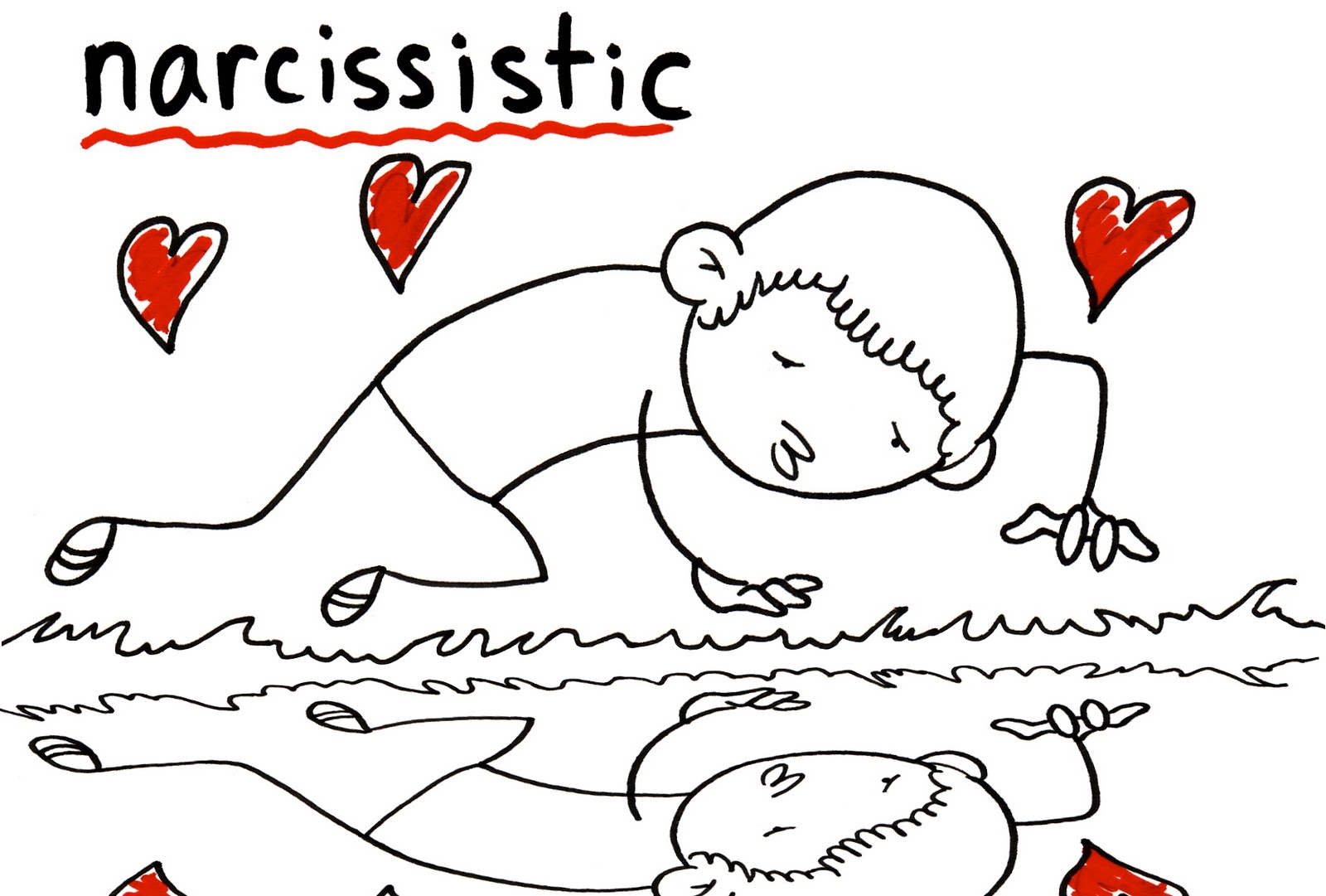Visits: 2
There are four core features common to all personality disorders.Before a diagnosis is made, a person must demonstrate significant and enduring difficulties in at least two of those four areas.
1) Distorted thinking patterns,
2) Problematic emotional responses,
3) Over- or under-regulated impulse control, and
4) Interpersonal difficulties.
These four key features combine in various ways to form ten specific personality disorders identified in DSM-5 (APA, 2013). Each disorder lists asset of criteria reflecting observable characteristics associated with that disorder. In order to be diagnosed with a specific personality disorder, a person must meet the minimum number of criteria established for that disorder. Furthermore, to meet the diagnostic requirements for a psychiatric disorder, the symptoms must cause functional impairment and/or subjective distress. This means the symptoms are distressing to the person with the disorder and/or the symptoms make it difficult for them to function well in society.
Furthermore, the ten different personality disorders can be grouped into three clusters based on descriptive similarities within each cluster. These clusters are:
Cluster A (the “odd, eccentric” cluster);
Cluster B (the “dramatic, emotional, erratic” cluster); and,
Cluster C (the “anxious, fearful” cluster).
Oftentimes, a person can be diagnosed with more than just one personality disorder. Research has shown that there is a tendency for personality disorders within the same cluster to co-occur (Skodol, 2005).
Now let’s look at how all four core features merge to create specific patterns called personality disorders.
Cluster A: Paranoid, Schizoid, and Schizotypal Personality Disorders
Cluster A is called the odd, eccentric cluster. It includes Paranoid Personality Disorder, Schizoid Personality Disorder, and Schizotypal Personality Disorders. The common features of the personality disorders in this cluster are social awkwardness and social withdrawal. These disorders are dominated by distorted thinking.
The Paranoid Personality Disorder* is characterized by a pervasive distrust and suspiciousness of other people. People with this disorder assume that others are out to harm them, take advantage of them, or humiliate them in some way. They put a lot of effort into protecting themselves and keeping their distance from others. They are known to preemptively attack others whom they feel threatened by. They tend to hold grudges, are litigious, and display pathological jealously. Distorted thinking is evident. Their perception of the environment includes reading malevolent intentions into genuinely harmless, innocuous comments or behavior, and dwelling on past slights. For these reasons, they do not confide in others and do not allow themselves to develop close relationships. Their emotional life tends to be dominated by distrust and hostility.
The Schizoid Personality Disorder* is characterized by a pervasive pattern of social detachment and a restricted range of emotional expression. For these reasons, people with this disorder tend to be socially isolated. They don’t seem to seek out or enjoy close relationships. They almost always chose solitary activities, and seem to take little pleasure in life. These “loners” often prefer mechanical or abstract activities that involve little human interaction and appear indifferent to both criticism and praise. Emotionally, they seem aloof, detached, and cold. They may be oblivious to social nuance and social cues causing them to appear socially inept and superficial. Their restricted emotional range and failure to reciprocate gestures or facial expressions (such a smiles or nods of agreement) cause them to appear rather dull, bland, or inattentive. The Schizoid Personality Disorder appears to be rather rare.
Persons with Schizotypal Personality Disorder* are characterized by a pervasive pattern of social and interpersonal limitations. They experience acute discomfort in social settings and have a reduced capacity for close relationships. For these reasons they tend to be socially isolated, reserved, and distant. Unlike the Schizoid Personality Disorder, they also experience perceptual and cognitive distortions and/or eccentric behavior. These perceptual abnormalities may include noticing flashes of light no one else can see, or seeing objects or shadows in the corner of their eyes and then realizing that nothing is there. People with Schizotypal Personality Disorder have odd beliefs, for instance, they may believe they can read other people’s thoughts, or that that their own thoughts have been stolen from their heads. These odd or superstitious beliefs and fantasies are inconsistent with cultural norms. Schizotypal Personality Disorder tends to be found more frequently in families where someone has been diagnosed with Schizophrenia; a severe mental disorder with the defining feature of psychosis (the loss of reality testing). There is some indication that these two distinct disorders share genetic commonalities (Coccaro&Siever, 2005).
Cluster B
Cluster B is called the dramatic, emotional, and erratic cluster. It includes Borderline Personality Disorder, Narcissistic Personality Disorder, Histrionic Personality Disorder, and Antisocial Personality Disorder. Disorders in this cluster share problems with impulse control and emotional regulation.
The Antisocial Personality Disorder* is characterized by a pervasive pattern of disregard for the rights of other people that often manifests as hostility and/or aggression. Deceit and manipulation are also central features. In many cases hostile-aggressive and deceitful behaviors may first appear during childhood. These children may hurt or torment animals or people. They may engage in hostile acts such as bullying or intimidating others. They may have a reckless disregard for property such as setting fires. They often engage in deceit, theft, and other serious violations of standard rules of conduct. When this is the case, Conduct Disorder (a juvenile form of Antisocial Personality Disorder) may be an appropriate diagnosis. Conduct Disorder is often considered the precursor to an Antisocial Personality Disorder.
In addition to reckless disregard for others, they often place themselves in dangerous or risky situations. They frequently act on impulsive urges without considering the consequences. This difficulty with impulse control results in loss of employment, accidents, legal difficulties, and incarceration. Persons with Antisocial Personality Disorder typically do not experience genuine remorse for the harm they cause others. However, they can become quite adept at feigning remorse when it is in their best interest to do so (such as when standing before a judge). They take little to no responsibility for their actions. In fact, they will often blame their victims for “causing” their wrong actions, or deserving of their fate. The aggressive features of this personality disorder make it stand out among other personality disorders as individuals with this disorder take a unique toll on society.
Persons with Histrionic Personality Disorder* are characterized by a pattern of excessive emotionality and attention seeking. Their lives are full of drama (so-called “drama queens”). They are uncomfortable in situations where they are not the center of attention. People with this disorder are often quite flirtatious or seductive, and like to dress in a manner that draws attention to them. They can be flamboyant and theatrical, exhibiting an exaggerated degree of emotional expression. Yet simultaneously, their emotional expression is vague, shallow, and lacking in detail. This gives them the appearance of being disingenuous and insincere. Moreover, the drama and exaggerated emotional expression often embarrasses friends and acquaintances as they may embrace even casual acquaintances with excessive ardor, or may sob uncontrollably over some minor sentimentality.
People with Histrionic Personality Disorder can appear flighty and fickle. Their behavioral style often gets in the way of truly intimate relationships, but it is also the case that they are uncomfortable being alone. They tend to feel depressed when they are not the center of attention. When they are in relationships, they often imagine relationships to be more intimate in nature than they actually are. People with Histrionic Personality Disorder tend to be suggestible; that is, they are easily influenced by other people’s suggestions and opinions. A literary character that exemplifies the Histrionic Personality Disorder is the character of Blanche DuBois in Tennessee William’s classic play, “Streetcar Named Desire.”
People with Narcissistic Personality Disorder* have significant problems with their sense of self-worth stemming from a powerful sense of entitlement. This leads them to believe they deserve special treatment, and to assume they have special powers, are uniquely talented, or that they are especially brilliant or attractive. Their sense of entitlement can lead them to act in ways that fundamentally disregard and disrespect the worth of those around them.
People with Narcissistic Personality Disorder are preoccupied with fantasies of unlimited success and power, so much so that they might end up getting lost in their daydreams while they fantasize about their superior intelligence or stunning beauty. These people can get so caught up in their fantasies that they don’t put any effort into their daily life and don’t direct their energies toward accomplishing their goals. They may believe that they are special and deserve special treatment, and may display an attitude that is arrogant and haughty. This can create a lot of conflict with other people who feel exploited and who dislike being treated in a condescending fashion. People with Narcissistic Personality Disorder often feel devastated when they realize that they have normal, average human limitations; that they are not as special as they think, or that others don’t admire them as much as they would like. These realizations are often accompanied by feelings of intense anger or shame that they sometimes take out on other people. Their need to be powerful, and admired, coupled with a lack of empathy for others, makes for conflictual relationships that are often superficial and devoid of real intimacy and caring.
Status is very important to people with Narcissistic Personality Disorder. Associating with famous and special people provides them a sense of importance. These individuals can quickly shift from over-idealizing others to devaluing them. However, the same is true of their self-judgments. They tend to vacillate between feeling like they have unlimited abilities, and then feeling deflated, worthless, and devastated when they encounter their normal, average human limitations. Despite their bravado, people with Narcissistic Personality Disorder require a lot of admiration from other people in order to bolster their own fragile self-esteem. They can be quite manipulative in extracting the necessary attention from those people around them.
Borderline Personality Disorder* is one of the most widely studied personality disorders. People with Borderline Personality Disorder tend to experience intense and unstable emotions and moods that can shift fairly quickly. They generally have a hard time calming down once they have become upset. As a result, they frequently have angry outbursts and engage in impulsive behaviors such as substance abuse, risky sexual liaisons, self-injury, overspending, or binge eating. These behaviors often function to sooth them in the short-term, but harm them in the longer term.
People with Borderline Personality Disorder tend to see the world in polarized, over-simplified, all-or-nothing terms. They apply their harsh either/or judgments to others and to themselves and their perceptions of themselves and others may quickly vacillate back and forth between “all good” and “all bad.” This tendency leads to an unstable sense of self, so that persons with this disorder tend to have a hard time being consistent. They can frequently change careers, relationships, life goals, or residences. Quite often these radical changes occur without any warning or advance preparation.
People with Borderline Personality Disorder tend to view the world in terms of black-and-white, or all-or-nothing thinking. Their tendency to see the world in black-or-white (polarized) terms makes it easy for them to misinterpret the actions and motivations of others. These polarized thoughts about their relationships with others lead them to experience intense emotional reactions, which in turn interacts with their difficulties in regulating these intense emotions. The result is that they will characteristically experience great distress which they cannot easily control and may subsequently engage in self-destructive behaviors as they do their best to cope. The intensity of their emotions, coupled with their difficulty regulating these emotions, leads them to act impulsively.
To illustrate the way black-and-white thinking, emotional dys-regulation, and poor impulse regulation all merge and culminate to create interpersonal conflict and distress, let’s use an example. Suppose the partner of a woman with Borderline Personality Disorder fails to remember their anniversary. Black-and-white thinking causes her to conclude, “He doesn’t love me anymore” and all-or-nothing thinking leads her to (falsely) conclude, “If he does not love me, then he must hate me.” Such thoughts would easily lead to some pretty intense emotions, such as feeling rejected, abandoned, sad, and angry. She has a hard time tolerating and dealing with these intense feelings and consequently becomes highly upset and overwhelmed. The intensity of her negative feelings seems unbearable. Next she has a powerful impulse to “do something” just so that these feelings will go away. She might angrily accuse her partner of having an affair and she might plead with her partner not to leave her.
Meanwhile her partner is baffled by this extreme reaction, particularly since he is not having an affair, and he readily recalls all his other recent loving gestures. Her partner might also become angry at these wild accusations of infidelity and so the conflict escalates and things get more intense. Alone after the fight, the woman feels overwhelming self-loathing or numbness and goes on to intentionally injure herself (by cutting or burning herself) as a way to cope with her numbness. When her partner learns about this self-harm behavior he can’t understand it and concludes he is being manipulated. He expresses his strong concern for her well-being but also his anger. In turn, she feels misunderstood. Clearly, the Borderline Personality Disorder with its combination of distorted thought patterns, intense and under-regulated emotions, and poor impulse control is practically designed to wreak havoc on any interpersonal relationship.
The Avoidant Personality Disorder* is characterized by a pervasive pattern of social inhibition, feelings of inadequacy, and a hypersensitivity to negative evaluation. People with this disorder are intensely afraid that others will ridicule them, reject them, or criticize them. This leads them to avoid social situations and to avoid interactions with others. This further limits their ability to develop social skills. People with Avoidant Personality Disorders often have a very limited social world with a small circle of confidants. Their social life is otherwise rather limited..
Their way of thinking about and interpreting the world revolves around the thought that they are not good enough, and that others don’t like them. They think of themselves as unappealing and socially inept. These types of thoughts create feelings of intense anxiety in social situations, along with a fear of being ridiculed, criticized, and rejected. The intensity of this fearful anxiety, and the discomfort it creates, compels them to avoid interpersonal situations. They might avoid parties or social events, and may have difficulty giving presentations at work or speaking up in meetings. Others might perceive them as distant or shy. They likely come across as stiff and restricted. All this will likely interfere with their ability to make friends, or to move ahead professionally.
The core feature of the Dependent Personality Disorder* is a strong need to be taken care of by other people. This need to be taken care of, and the associated fear of losing the support of others, often leads people with Dependent Personality Disorder to behave in a “clingy” manner; to submit to the desires of other people. In order to avoid conflict, they may have great difficulty standing up for themselves. The intense fear of losing a relationship makes them vulnerable to manipulation and abuse. They find it difficult to express disagreement or make independent decisions, and are challenged to begin a task when nobody is available to assist them. Being alone is extremely hard for them. When someone with Dependent Personality Disorder finds that a relationship they depend on has ended, they will immediately seek another source of support.
Persons with Obsessive-Compulsive Personality Disorder* are preoccupied with rules, regulations, and orderliness. This preoccupation with perfectionism and control is at the expense of flexibility, openness, and efficiency. They are great makers of lists and schedules, and are often devoted to work to such an extent that they often neglect social relationships. They have perfectionist tendencies, and are so driven in their work to “get it right” that they become unable to complete projects or specific tasks because they get lost in the details, and fail to see the “forest for the trees.” Persons with Obsessive-Compulsive Personality Disorder tend to be rigid and inflexible in their approach to things. It simply isn’t an option for them to do a “sub-standard” job just to get something done. Often, they are unable to delegate tasks for fear that another person will not “get it right.” Sometimes people with this disorder adopt a miserly style with both themselves and others. Money is regarded as something that must be rigidly controlled in order to ward off future catastrophe. People with this disorder are often experienced as rigid, controlling, and stubborn.
Cluster C
Cluster C is called the anxious, fearful cluster. It includes the Avoidant, Dependent, and Obsessive-Compulsive Personality Disorders. These three personality disorders share a high level of anxiety.
The Avoidant Personality Disorder* is characterized by a pervasive pattern of social inhibition, feelings of inadequacy, and a hypersensitivity to negative evaluation. People with this disorder are intensely afraid that others will ridicule them, reject them, or criticize them. This leads them to avoid social situations and to avoid interactions with others. This further limits their ability to develop social skills. People with Avoidant Personality Disorders often have a very limited social world with a small circle of confidants. Their social life is otherwise rather limited..
Their way of thinking about and interpreting the world revolves around the thought that they are not good enough, and that others don’t like them. They think of themselves as unappealing and socially inept. These types of thoughts create feelings of intense anxiety in social situations, along with a fear of being ridiculed, criticized, and rejected. The intensity of this fearful anxiety, and the discomfort it creates, compels them to avoid interpersonal situations. They might avoid parties or social events, and may have difficulty giving presentations at work or speaking up in meetings. Others might perceive them as distant or shy. They likely come across as stiff and restricted. All this will likely interfere with their ability to make friends, or to move ahead professionally.
The core feature of the Dependent Personality Disorder* is a strong need to be taken care of by other people. This need to be taken care of, and the associated fear of losing the support of others, often leads people with Dependent Personality Disorder to behave in a “clingy” manner; to submit to the desires of other people. In order to avoid conflict, they may have great difficulty standing up for themselves. The intense fear of losing a relationship makes them vulnerable to manipulation and abuse. They find it difficult to express disagreement or make independent decisions, and are challenged to begin a task when nobody is available to assist them. Being alone is extremely hard for them. When someone with Dependent Personality Disorder finds that a relationship they depend on has ended, they will immediately seek another source of support.
Persons with Obsessive-Compulsive Personality Disorder* are preoccupied with rules, regulations, and orderliness. This preoccupation with perfectionism and control is at the expense of flexibility, openness, and efficiency. They are great makers of lists and schedules, and are often devoted to work to such an extent that they often neglect social relationships. They have perfectionist tendencies, and are so driven in their work to “get it right” that they become unable to complete projects or specific tasks because they get lost in the details, and fail to see the “forest for the trees.” Persons with Obsessive-Compulsive Personality Disorder tend to be rigid and inflexible in their approach to things. It simply isn’t an option for them to do a “sub-standard” job just to get something done. Often, they are unable to delegate tasks for fear that another person will not “get it right.” Sometimes people with this disorder adopt a miserly style with both themselves and others. Money is regarded as something that must be rigidly controlled in order to ward off future catastrophe. People with this disorder are often experienced as rigid, controlling, and stubborn.
For more information, contact Dr. Savannah at (415) 877-4004 or sav@savannahellis.net











